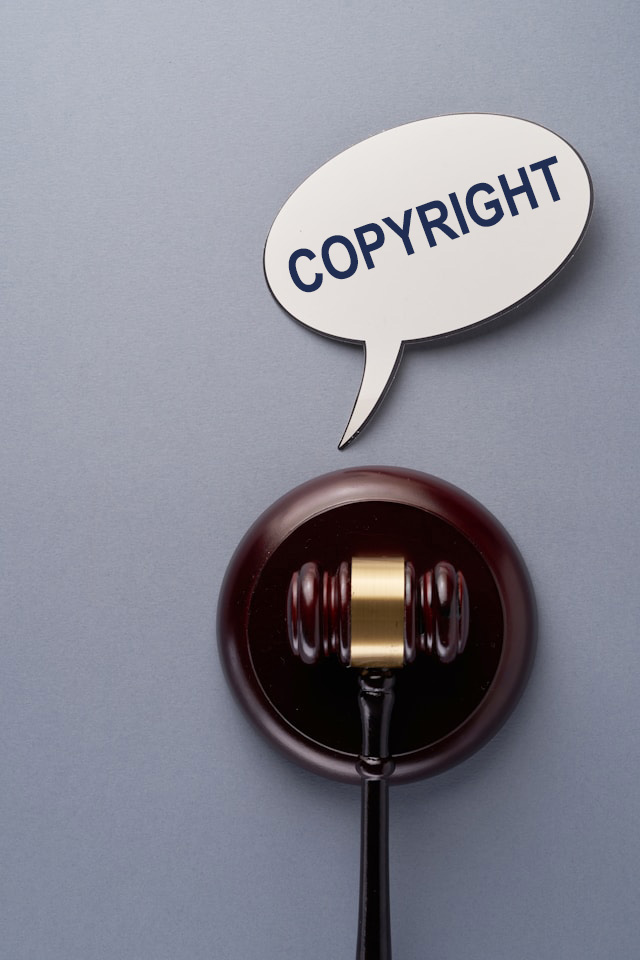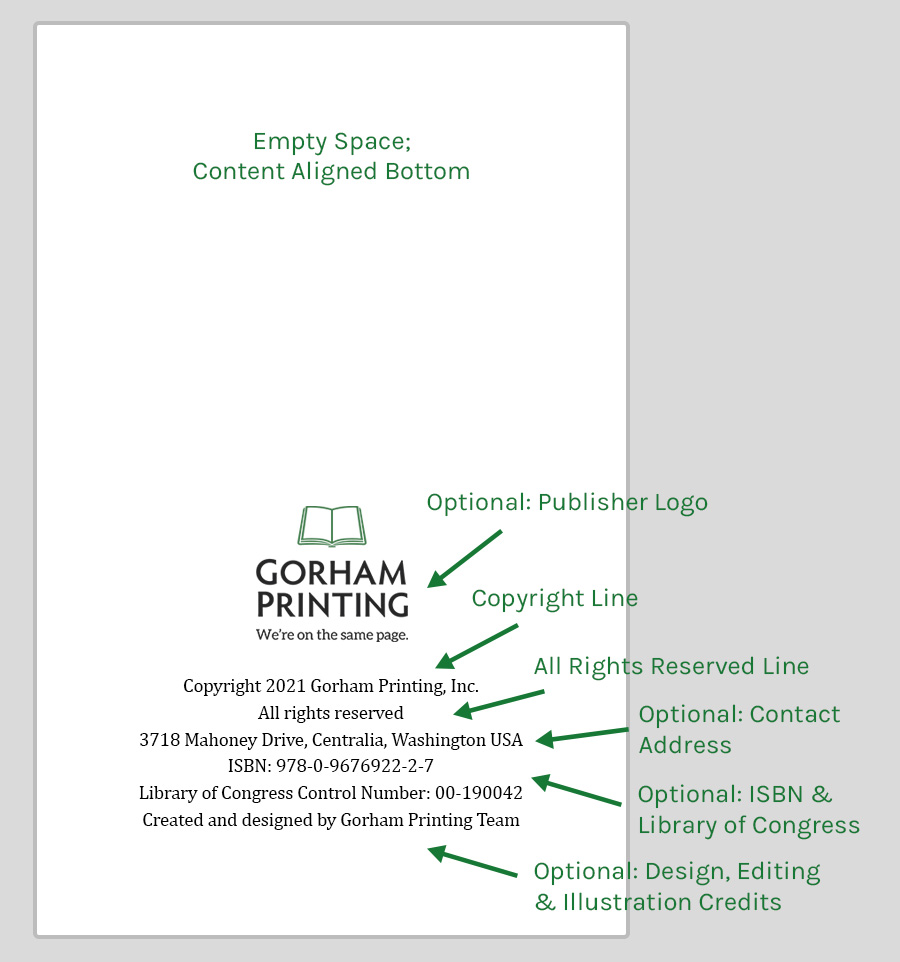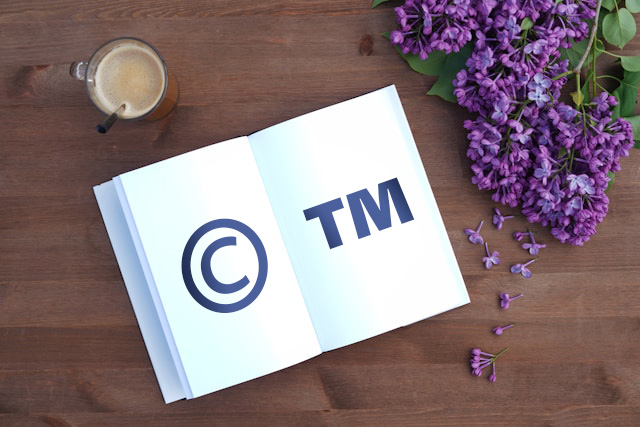What is a Copyright
Copyright is a type of intellectual property that protects original works of authorship as soon as an author fixes the work in
a tangible form of expression. Original works means something independently created by a human author and have at least some
minimal degree of creativity. It protects your hard work from being stolen or plagiarized.
Copyright protects expression, but not ideas, procedures, methods, systems, processes, concepts, principles, or discoveries. It
also does not include not creative things such as book titles, names, phrases, slogans, or simple symbols or logos.
In 1790, USA Congress passed the very first copyright law. Over time they have been updated to better protect original works by authors.
Under the United
States Constitution Article I, Section 8, it states "Congress shall have Power…To promote the Progress of Science and useful Arts,
by securing for limited Times to Authors and Inventors the exclusive Right to their respective Writings and Discoveries."
To learn more about copyright, it is best to always go directly to the source which is
copyright.gov.
Book Author’s Copyright Rights
USA Copyright laws protects book authors and gives them the exclusive rights to (provided by
copyright.gov):
- Reproduce the work in copies or phonorecords
- Prepare derivative works based upon the work
- Distribute copies or phonorecords of the work to the public by sale or other transfer of ownership or by rental, lease,
or lending
- Perform the work publicly if it is a literary, musical, dramatic, or choreographic work; a
pantomime; or a motion picture or other audiovisual
work
- Perform the work publicly by means of a digital audio transmission if the work is a sound recording.
Once you copyright your book, the book's content, or intellectual property is protected for 70 years after the death of the author
or copyright holder by copyright law. After this it will enter the public domain. If you are using a public domain book and repurposing
or reformatting it, learn about Copyrighting and Public Domain Books.
Who Can Copyright a Book
Everyone can be a copyright owner which means anyone can copyright a book. When you write your book and put it in a tangible form (such
as printing your book), you are the author and you are the copyright owner. Copyright ownership can also come from contracts or assignments
if you are working with a publisher, or a publishing house.
Learn more about being a copyright owner at copyright.gov.
Do you Need a Copyright for a Book
The short answer is, yes you do need a copyright for your book. If your book is an original work you should
always copyright your book. It protects your hard work from being stolen or plagiarized. Copyrighting your book is simple. If you have written
your book and are putting it in tangible form (printing it), then you can follow the steps below to protect your work with copyright.
How To Copyright Your Book
Copyrighting your book is simple! Your book is secured automatically when the work is created in tangible form. To make sure of this you
will just need to add the word "Copyright" followed by the copyright symbol "©", the date (usually month & year), and your name or your publisher
on your copyright page. The copyright page usually appears on the left side of your book right after your title page. When you copyright your book
it would look something like this:
Copyright © 2024 Gorham Printing Inc.
All rights reserved.
You may wish to write a more elaborate copyright verbiage but it is completely up to you! All you really need is what is above. The best thing
to do is to look at books you like and see what they put on their copyright page.
If you are looking to have additional legal protection of your work you can register your copyright AFTER your book is
printed. This will help strengthen your legal rights but it is not necessary. If you are interested in registering your already printed
book that has a copyright, or for a future book, visit copyright.gov/registration
to learn exactly how to register your copyright.
What to Put on a Copyright Page
In How to Copyright Your Book we explain how all you really to copyright your book is to print it and add the word
"Copyright" followed up the copyright symbol "©", the date (usually month & year), and your name or your publisher on your copyright page. However a
common question we hear is "what do I put on my copyright page?" Well here is the information we have gathered from copyright.gov (the official USA
copyright website), the Chicago Manual of Style (the official book design and formatting guidelines), and our 45+ years of experience as a book printer.
Your copyright page should be your second or fourth page of the book on the left-side (verso) of your book. This would be after your title page but
before the book officially starts.
A Copyright Page Example
Copyright page content is tradtionally aligned to the bottom of the page. Only the copyright line and 'all rights reserved' line
are required. However, common elements of a copyright page include:
- Copyright line
- 'All rights reserved' line
- Publisher logo
- Contact address
- ISBN & Library of Congress number
- Design, editing, and illustration credits
Difference Between Copyright and Trademark
Some authors have asked if they need a copyright or trademark. The simple answer is "an author needs a copyright for their
book" not a trademark. A trademark according to copyrightalliance.org is "a trademark
is a word, phrase, symbol, and/or design that identifies and distinguishes the source of the goods of one party from those of others. A service mark is a
word, phrase, symbol, and/or design that identifies and distinguishes the source of a service rather than goods. Examples include brand names, slogans,
and logos. (The term "trademark" is often used in a general sense to refer to both trademarks and service marks.)
Similar to copyright, a person does not need to register a trademark or service mark for the mark to be protected, but there are certain legal
benefits to registering the mark with the United States Patent and Trademark Office
(USPTO)." Sometimes trademarks and copyrights are near each other but they are not the same thing. For your book you will only need a copyright
unless you are part of a company or have trademarked symbols or phrases such as Pepsi-Cola is a trademark name and logo.
Copyrighting and Public Domain Books
Books that are in the public domain means everyone can print the books. Public Domain Books mean the book’s author has passed away over 70 years
ago or the publisher/author did not extend their copyright at time of expiration. This means anyone can repurpose the book's content and/or
intellectual property. Sometimes this means:
- Printing the book with a new cover, formatting, illustrations
- Publishing quotes from the book
- Editing the book and printing it
- Changing the storyline but using the same characters and plot
- And many other changes
When you repurpose a public domain book, you would need to create yourself a new copyright page for YOUR VERSION of the
book. This shows that you are the unique author/publisher of this version of the book. To make sure your repurposing of a public domain
book is unique enough, even Amazon Publishing requires these minimums for Public Domain Books being reprinted:
- Translated: Original translations
- Annotated: Original annotations (additional content like study guides, literary critiques, detailed
biographies, or historical context)
- Illustrated: 10 or more original illustrations relevant to the book
What Else You Might Need to Publish Your Book
If you are publishing your book, aka printing your book, and you have an ISBN, you might also need to:
How to Get an ISBN
Find a Book Editor
Book Design Services
Get a Print Quote
If you have more questions do not hesitate to Contact Us, your book printing experts at Gorham
Printing.










